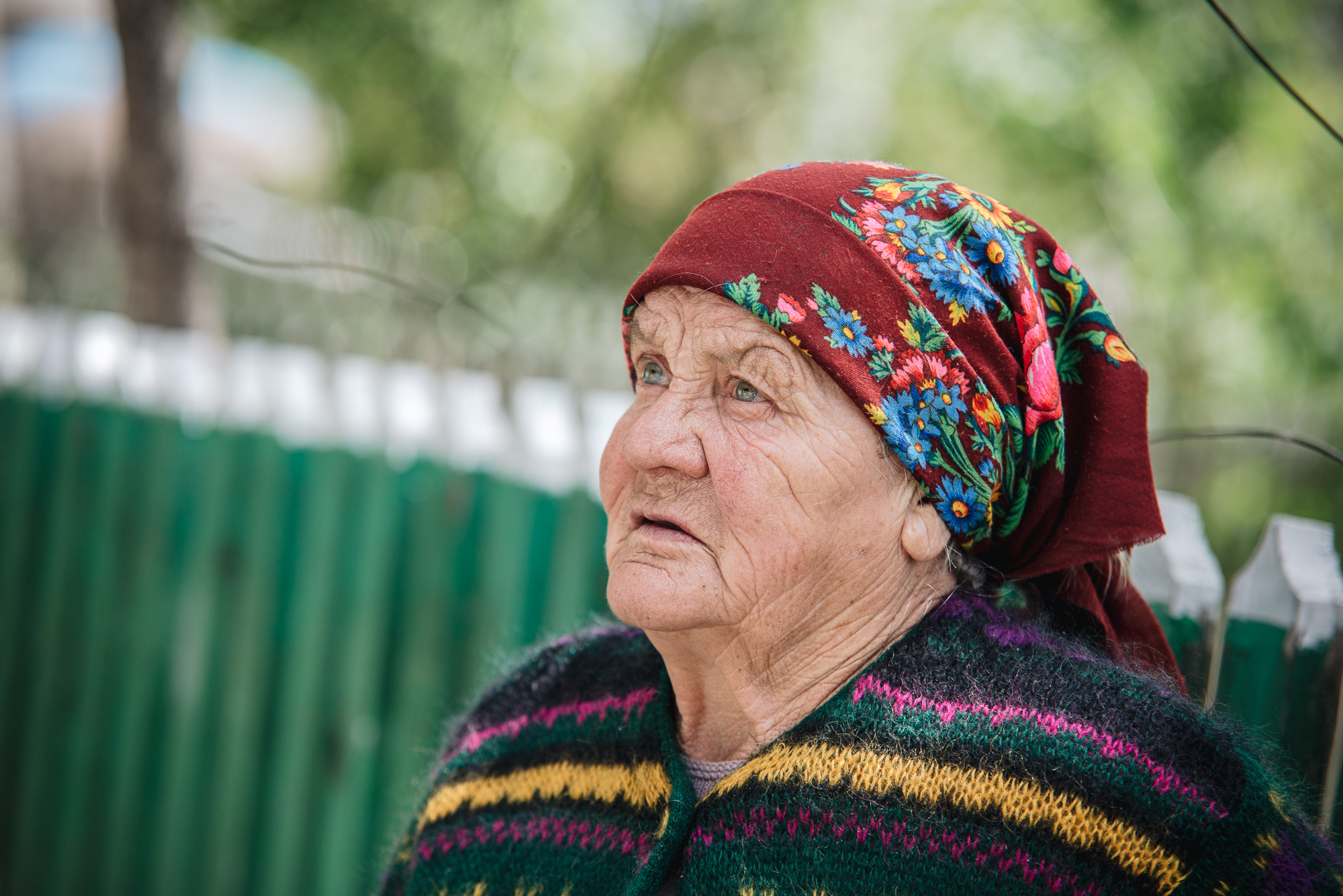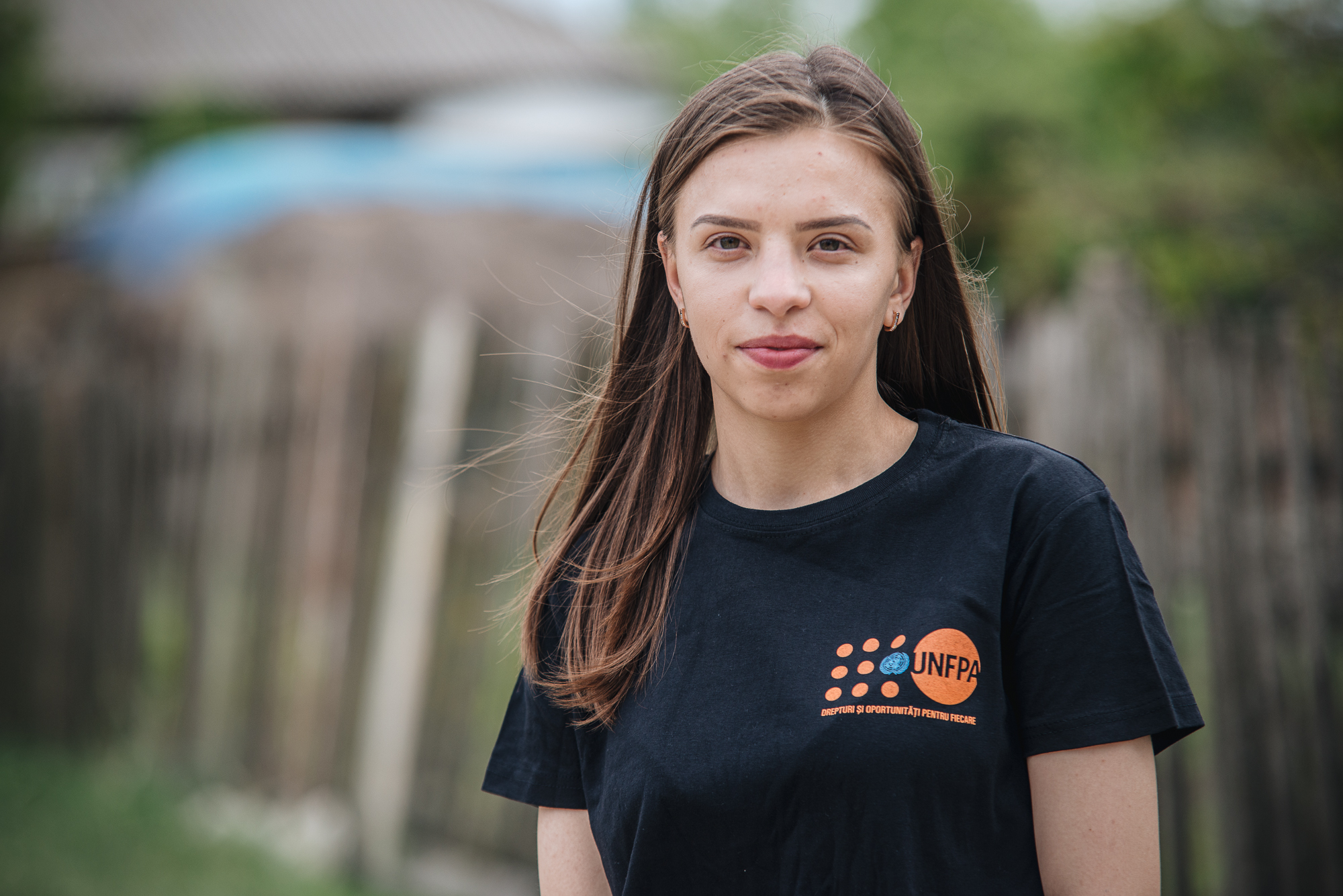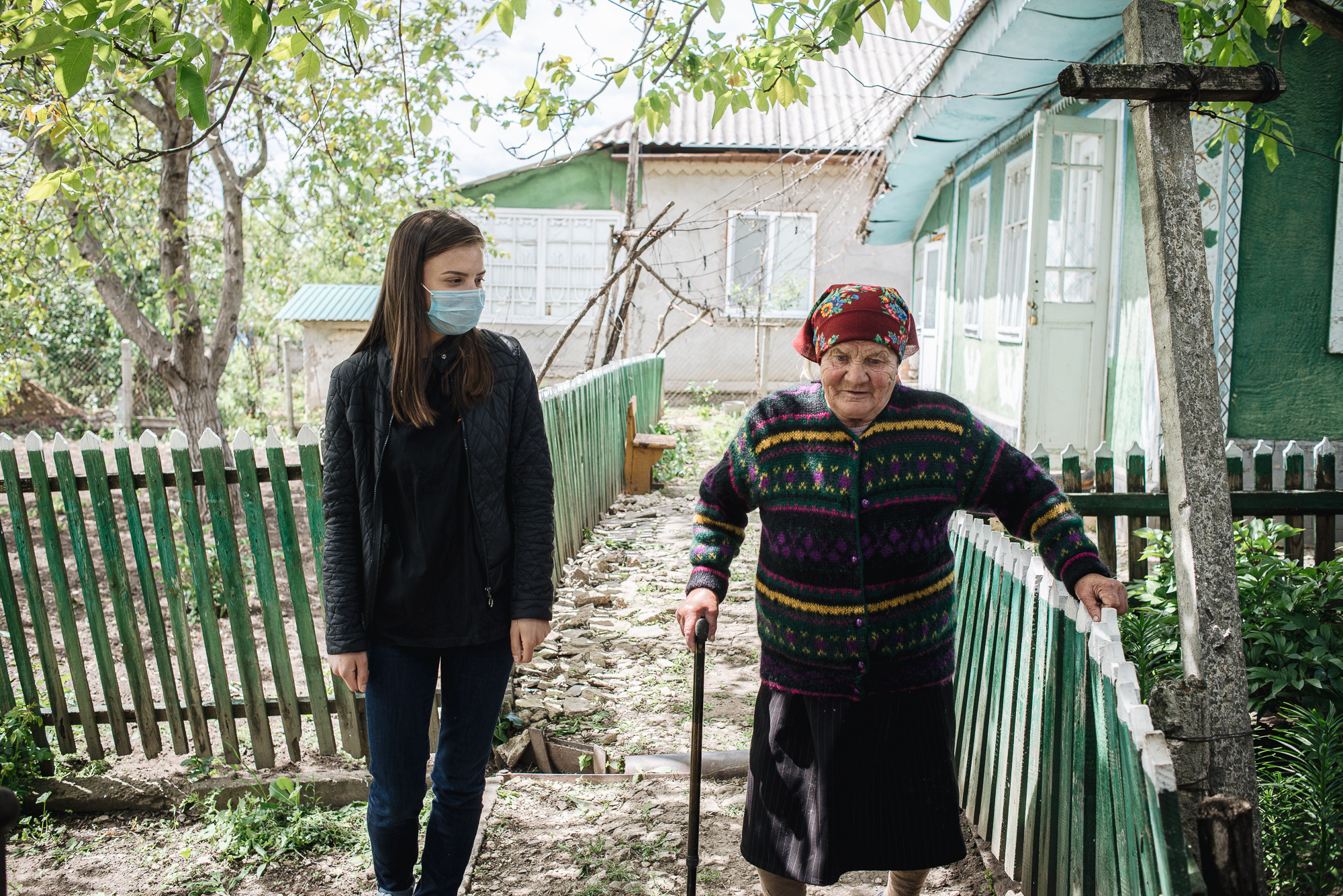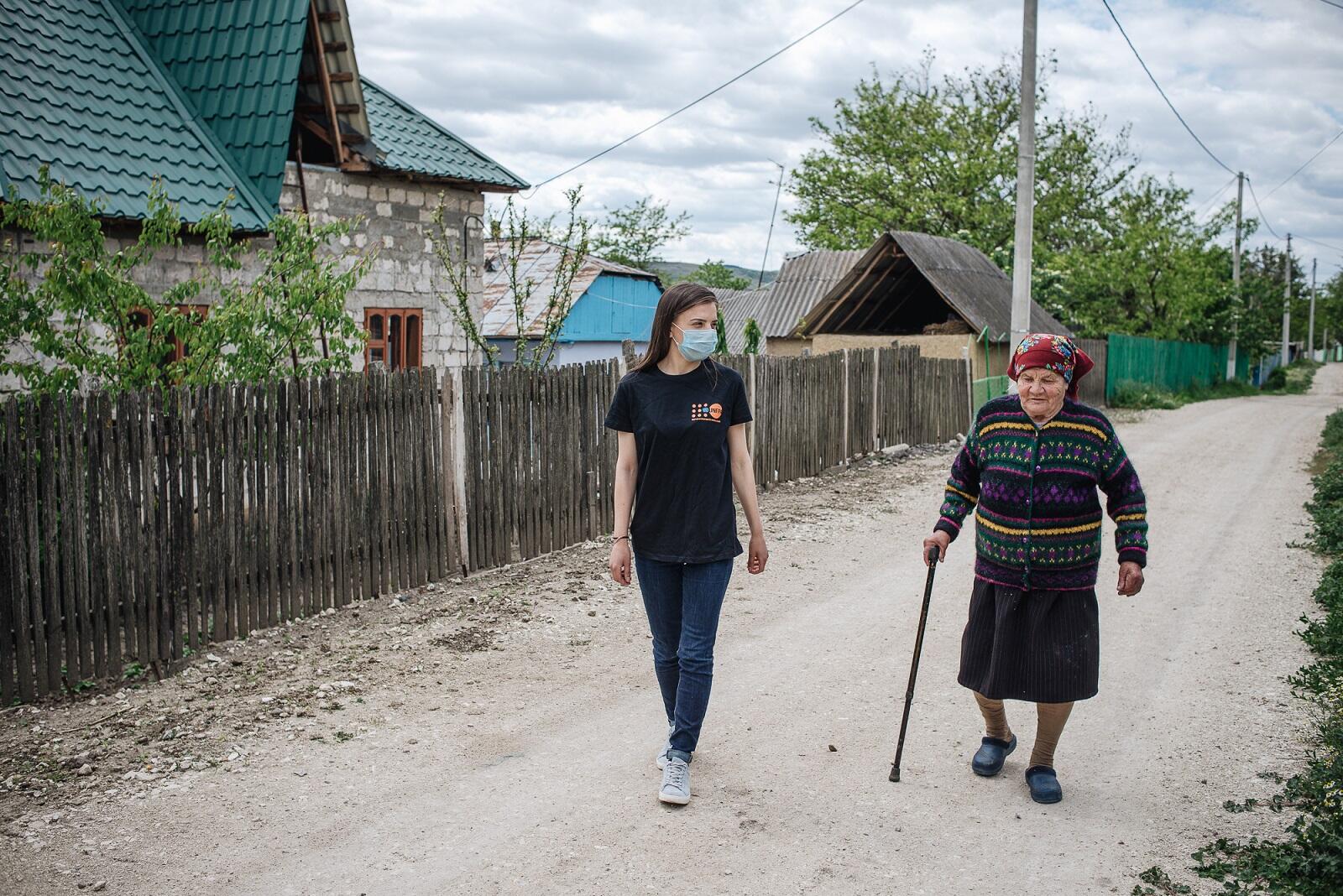After several ringtones, Maria Rosca finally answered her phone. She came from the outside garden, where she had planted vegetables. Now she hopes that it will rain soon and the vegetables will grow. She's 73 years old, and for a year, since her husband died, she has been living alone. Both her children have taken the path of migration, the daughter left to Italy, and the son to Russia, so she waits for the pandemic to end and, hopefully, to see them at home.
Since the quarantine, Aunt Maria doesn't go anywhere, even to the neighbors. There aren't many of them anyway. Some of them died, others emigrated in search of a better life. But, says Aunt Maria, it's quiet instead. So quiet that there are days when even the phone doesn't ring, and the birds make the only noise in the yard. "I keep the TV and the Radio on to feel that I am not alone in the house. I don't know when this pandemic will end. Even the children can't come home to see me because the borders are closed", the woman says.

Young volunteers step up
Maria Rosca lives in a village from the northern Moldova, and is one of those 200 older, isolated persons, who have been visited and phoned by volunteers of the UN Population Fund (UNFPA) as part of an initiative to strengthen the intergenerational dialogue. 15 young people contacted women and men over the age of 65 from four districts of the country and provided them emotional support during this isolation period. A psychologist and an epidemiologist trained the young people on how to hold the discussions well.
"It is all about the right tone and message. It is imperative to never promise things that you can't do,", the psychologist Zinaida Soroceanu explained.
"Older people are among the most affected by social isolation in the context of COVID-19, and we thought that young people could support them", said Natalia Plugaru, UNFPA Deputy Representative in Moldova. At UNFPA, we work with our government partners and civil society to develop an intergenerational dialogue to ensure that the dignity and rights of older people are protected, and their potential is fully exploited", she added.

Nelea Ungureanu is a high school student and one of the volunteers engaged in the initiative. In her spare time after the online lessons, she called Aunt Maria to ask how she was doing.
"Talking to Aunt Maria and other grandparents, even if on the phone, was a great experience. I had a chance to learn their stories. Some of them are very sad, but others are inspiring. They are quite alone, and at the end of the discussions, they were asking me when I will come back with another call," Nelea says.
"I laughed with them, I cried when they told me about their relatives who emigrated from the country and, often, instead of encouraging them, it happened the other way around, they encouraged me. We need to continue these activities because they are helpful for the young and older generation," says Maria Negru, another volunteer involved in UNFPA activities.
For Nifolina Ganea, who is 70 years old and lives alone, the lack of communication is hard to bear and was impressed by the young people's initiative to call her to find out how she feels and how she spends her time. "Communication is necessary. But the world has changed, too. Before people had more care for each other, now we are fewer, and everyone thinks of himself. We are more selfish, more envious," the woman confesses.

A society for all ages
UNFPA's move to strengthen intergenerational dialogue is one of the primary objectives. The initiative launched during the pandemic came from the fact that older people are most affected by Covid-19.
"I hope that this crisis, and the horrifying effects it has on many older people, will come to be a turning point for how we see and treat older people in society," Alanna Armitage, Director of the Regional Office for Eastern Europe and Central Asia of UNFPA, recently said in an Op-ed. "We must learn from past mistakes and get serious about creating a society for all ages in which older people are recognized and supported, as the important pillars of society. This is not only a moral imperative; it's a win-win for all, old and young alike."
According to the National Bureau of Statistics data, at the beginning of 2019, more than half a million people over the age of 60 and older lived in the Republic of Moldova, which is the fifth part of the total population. The poverty rate among older people is 10.1% compared to the general population: 9.6%.
Previously, as part of the same initiative carried out by UNFPA and the Ministry of Health, Labour and Social Protection, the older persons received packages with essential hygiene and food products, as well as information materials on protection measures against COVID-19.



